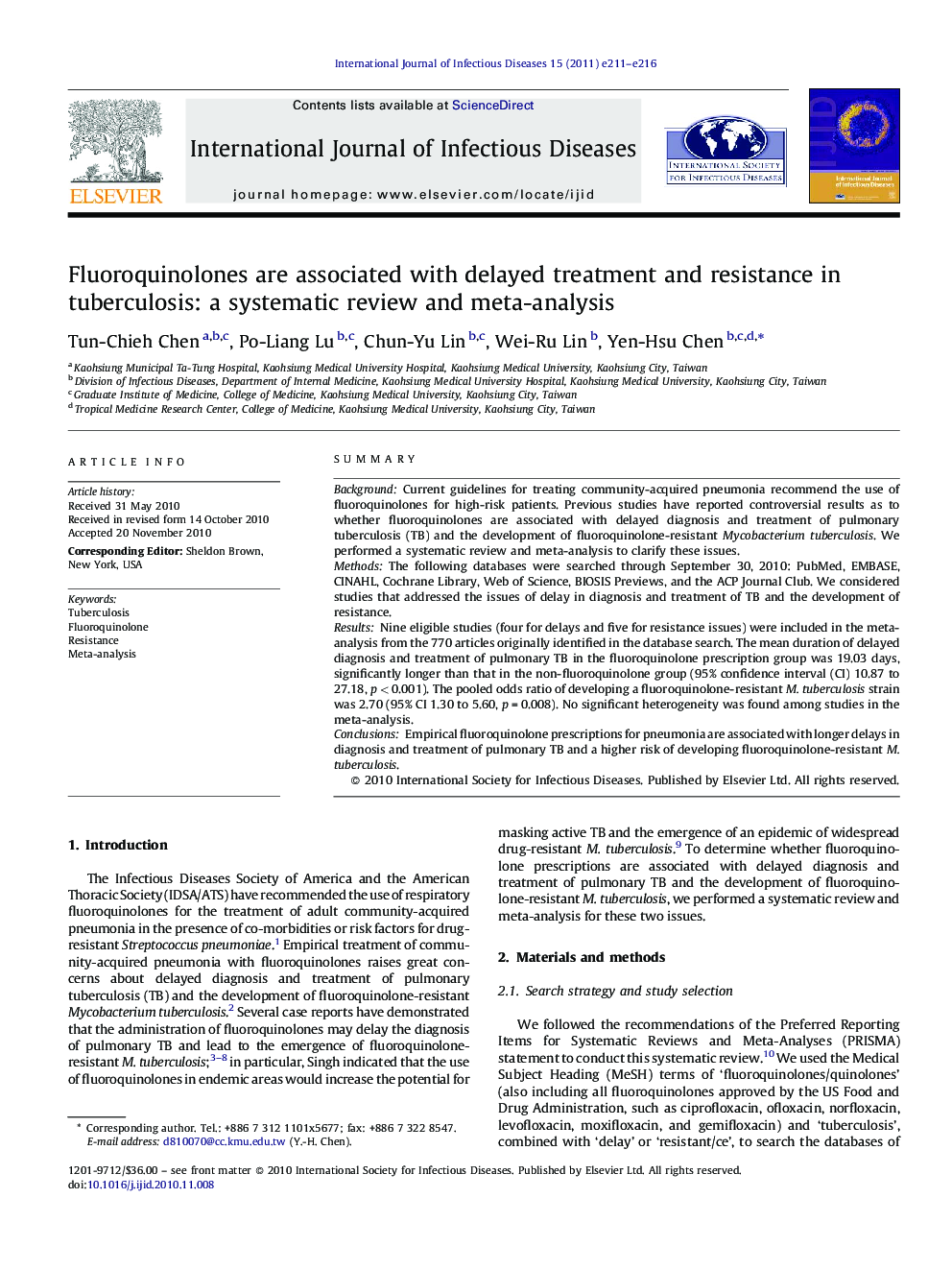| Article ID | Journal | Published Year | Pages | File Type |
|---|---|---|---|---|
| 3363058 | International Journal of Infectious Diseases | 2011 | 6 Pages |
SummaryBackgroundCurrent guidelines for treating community-acquired pneumonia recommend the use of fluoroquinolones for high-risk patients. Previous studies have reported controversial results as to whether fluoroquinolones are associated with delayed diagnosis and treatment of pulmonary tuberculosis (TB) and the development of fluoroquinolone-resistant Mycobacterium tuberculosis. We performed a systematic review and meta-analysis to clarify these issues.MethodsThe following databases were searched through September 30, 2010: PubMed, EMBASE, CINAHL, Cochrane Library, Web of Science, BIOSIS Previews, and the ACP Journal Club. We considered studies that addressed the issues of delay in diagnosis and treatment of TB and the development of resistance.ResultsNine eligible studies (four for delays and five for resistance issues) were included in the meta-analysis from the 770 articles originally identified in the database search. The mean duration of delayed diagnosis and treatment of pulmonary TB in the fluoroquinolone prescription group was 19.03 days, significantly longer than that in the non-fluoroquinolone group (95% confidence interval (CI) 10.87 to 27.18, p < 0.001). The pooled odds ratio of developing a fluoroquinolone-resistant M. tuberculosis strain was 2.70 (95% CI 1.30 to 5.60, p = 0.008). No significant heterogeneity was found among studies in the meta-analysis.ConclusionsEmpirical fluoroquinolone prescriptions for pneumonia are associated with longer delays in diagnosis and treatment of pulmonary TB and a higher risk of developing fluoroquinolone-resistant M. tuberculosis.
